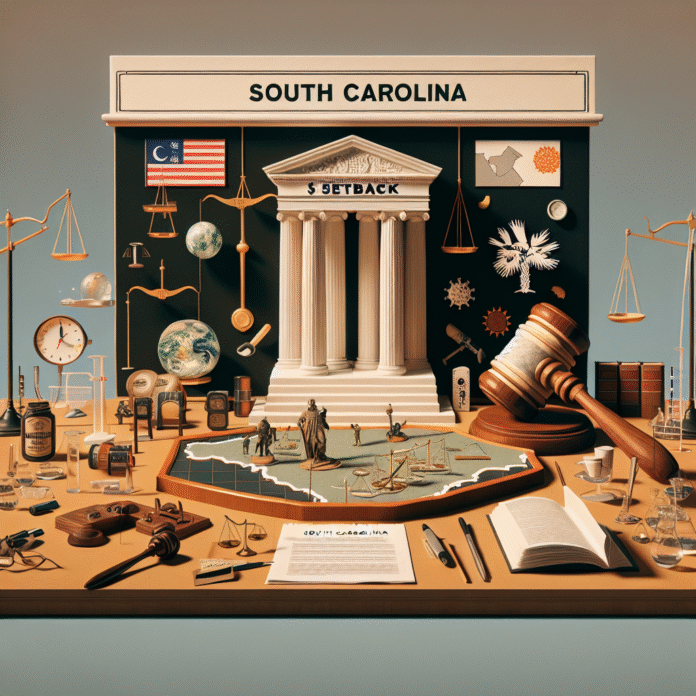Climate Lawfare Campaign Faces Setback in South Carolina
Setback for Climate Lawfare Initiative in South Carolina
In a significant development, a recent ruling in South Carolina has dealt a considerable blow to the climate lawfare movement, which seeks to use legal action as a means to combat climate change. This ruling comes amid a growing trend where environmental activists are increasingly resorting to litigation to impose regulatory changes and enforce climate policies.
The case in question involved a challenge to the state’s environmental regulations, spearheaded by various environmental groups aiming to compel the government to adopt more aggressive climate measures. However, the court’s decision upheld the existing regulations, indicating that the current legal framework does not require additional action from state authorities.
Understanding Climate Lawfare
Climate lawfare refers to the strategic use of lawsuits and legal actions to influence climate policy and seek accountability from corporations and governments regarding their environmental impact. Proponents argue that legal avenues are essential for enforcing stricter regulatory measures, while critics contend that such tactics can disrupt economic activities and lead to unintended consequences.
While some jurisdictions have seen success with climate lawfare, the South Carolina ruling signifies a growing resistance against such efforts, emphasizing the importance of legislative processes over judicial intervention. This outcome could set a precedent for future climate-related litigation in the state and beyond.
Broader Implications of the Ruling
The implications of this ruling extend beyond South Carolina. As climate change continues to be a pressing global issue, the legal landscape surrounding environmental regulations is evolving. Courts across the nation are grappling with the balance between environmental advocacy and economic interests.
Moreover, this decision may influence how other states approach climate legislation and their willingness to engage in lawfare tactics. Environmental groups may need to reassess their strategies and focus on collaborative approaches with policymakers rather than relying solely on litigation.
Looking Ahead
As the climate crisis intensifies, the intersection of law and environmental policy will remain a focal point for discussion. Stakeholders—ranging from activists to policymakers—must navigate this complex landscape to find effective solutions that address climate change while considering economic stability.
In conclusion, the recent ruling in South Carolina highlights the challenges faced by climate lawfare initiatives and underscores the need for a balanced approach in addressing environmental issues. As the legal and political dynamics evolve, it will be essential for all parties involved to work towards sustainable and equitable solutions for the future.
